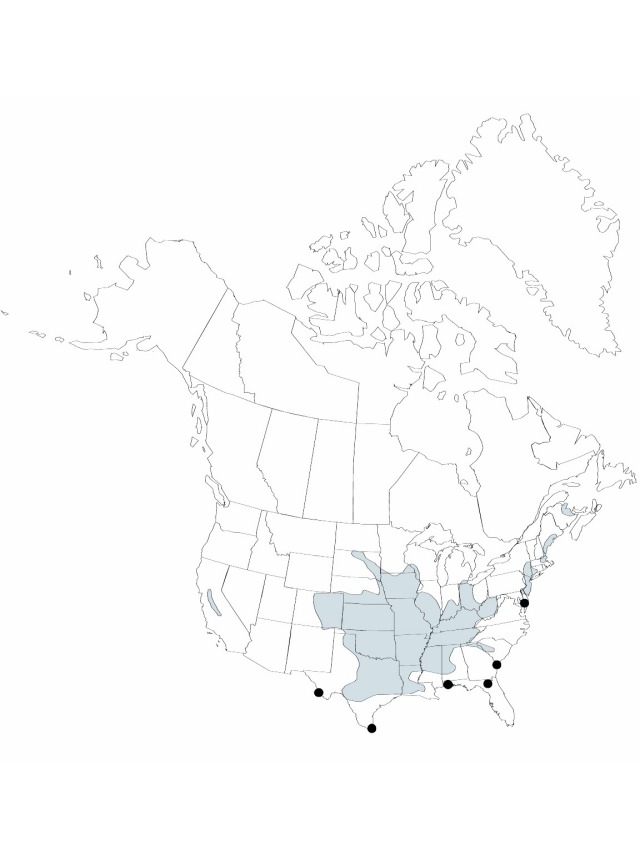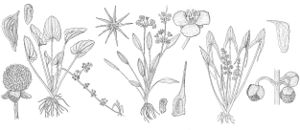Sagittaria montevidensis
Linnaea 2: 156. 1827.
Herbs, annual or perennial, to 100 cm; rhizomes present; stolons present; corms present. Leaves submersed and emersed; submersed leaves absent or phyllodial, flattened, to 17 × 2 cm; emersed leaves with petiole triangular, 21–55 cm, blade hastate to sagittate, 2.5–17.5 × 0.6–22 cm, lobes longer than or equal to remainder of blade. Inflorescences racemes or panicles, of 1–15 whorls, floating or emersed, 1.5–28 × 1.5–15 cm; peduncles 15–47 cm; bracts distinct or connate less than ¼ total length, lanceolate to elliptic, 4–34 mm, delicate, not papillose; fruiting pedicels recurved, club-shaped, 0.5–4.2 cm. Flowers 2–5 cm diam.; sepals spreading in staminate, erect in pistillate, enclosing flower or fruiting head; filaments cylindric, longer than anthers, glabrous; pistillate pedicellate, with or without ring of sterile stamens. Fruiting heads 1.2–2.1 cm diam.; achenes oblanceoloid, not abaxially keeled, 2–4.3 × 0.7–1.5 mm, beaked; faces not tuberculate, wings absent, glands 1; beak lateral, horizontal, 0.4–0.8 mm.
Distribution

North America, Mexico, South America.
Discussion
Subspecies 3 (3 in the flora).
Selected References
None.
Lower Taxa
Key
| 1 | Plants of tidal mud flats, often stranded by low tide, emersed blades spatulate, rarely sagittate. | Sagittaria montevidensis subsp. spongiosa |
| 1 | Plants of fresh waters, not stranded by low tide; emersed blades hastate to sagittate. | > 2 |
| 2 | Pistillate flowers without ring of sterile stamens; petals with purple spot at base | Sagittaria montevidensis subsp. montevidensis |
| 2 | Pistillate flowers with ring of sterile stamens; petals without purple spot at base. | Sagittaria montevidensis subsp. calycina |
